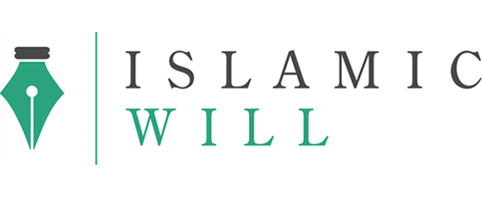Administrator
If an Executor has not been appointed in a valid Will, the Administrator is a representative who will obtain a grant of letters of administration from the Probate Registry to act as the legal authority to deal with the deceased's estate.
Advance Decision
A statement instructing healthcare professionals on treatment or care provision on behalf of an individual if they are unable to communicate their wishes.
Advance Statement
Information prepared with an individual's medical records informing healthcare professionals of their preferred treatment in the instance they become terminally ill.
Assets
Your savings, investments, land, buildings and personal possessions (e.g. car, jewellery) which together make up their estate.
Attorney
A person appointed to make decisions on behalf of an individual about either their health and welfare or property and financial affairs (or both).
Beneficiary
The person(s) who will receive your inheritance.
Bequest
A gift of cash or a particular item excluding land or buildings.
Charity
An non-profit organisation which delivers philanthropic or social goals to serve the public interest or common good. The Charity Commission register and regulate charities in England and Wales, to ensure that the public can support charities with confidence.
Child(ren)
(as referred to in a Will or intestacy): Child(ren) of the deceased under the age of 18 which can include adopted children. This does not include stepchildren unless they are specifically mentioned in the Will.
Codicil
This is a document that amends, rather than replaces, a previously executed will. Amendments made by a codicil may add or revoke small provisions (e.g., changing executors), or may completely change the majority, or all, of the gifts under the will.
Confirmation
These are documents, which are issued by the Sheriff court to the executors of a Will to authorise them to deal with the estate.
Court of Protection
The Court in England and Wales, which makes decisions on applications involving people who lack mental capacity.
Deputy
An individual appointed by the Court of Protection to make decisions for someone who has limited capacity to do so and for whom no Power of Attorney has been appointed.
Domicile
The place you consider as your permanent home for tax purposes, even if you actually reside elsewhere. It is distinctly different from ones nationality and place of residence.
Donor
The person making an Lasting Power of Attorney to appoint an attorney to make decisions on their behalf.
Estate
For inheritance tax purposes, this includes a person's assets in: - their sole name - their share of joint assets - assets which they have nominated elsewhere - assets in trust (an immediate post death interest or interests from a disabled person interest from which they had a benefit) - assets given away while reserving their benefit and the value of chargeable transfers within 7 years of death.
Excepted estate
This is the case when an an estate has no inheritance tax to pay such as those that are valued at less than £325,000 (until the 2018-19 tax year) or where the estate passes to a spouse, civil partner or a charity.
Executor
This is a personal representative who is appointed by a valid Will or codicil, to apply for probate of the Will if it comprises stocks, shares or invested money that exceeds £15,000.
This does not have to be a professional executor (e.g. solicitor, Will writer or bank) if your affairs are straightforward. In this case, family or friends including beneficiaries can act as your executor.
Even if there is no professional executor named in the Will, a non-professional executor can still employ a professional when you die if they wish. It may be expensive to use a professional executor, particularly if they charge a percentage of the value of the estate.
Executor Dative
If there is no Will or named executor who will enact the Will, an Executor Dative is appointed by the Sheriff court to do this on the deceased’s behalf.
Executor Nominate
The personal representative who is nominated in a valid Will or codicil. This representative may have to apply for confirmation to show he is the person with legal authority to deal with the property of the deceased.
Free of Tax
Gifts made in the Will can be stated as free of tax, which means that any inheritance tax on the value of that gift is borne by the residuary estate.
Guardian
A person who would become responsible for the children of the deceased in the event of death before the children are 18 years old.
Heritable property
Land, buildings or interest in land or buildings.
Inheritance tax (IHT):
This tax is payable when the total estate of the deceased person exceeds a set threshold (subject to various exemptions, reliefs and adjustments).
Insolvent
This financial state occurs in the instance that the value of debts and liabilities of the deceased exceeds the value of any assets.
Intestate
A person who dies without making a Will.
Issue
Your children and their descendants.
Joint Tenants
Where two or more people own assets as 'Joint Tenants' it means that on the occasion of the death of one of them, their share in that asset passes automatically to the surviving co-owner(s) and not as part of their estate under their Will.
Lasting Power of Attorney (LPA)
A document which appoints an attorney in the event that an individual loses the capacity to make their own decisions. There are health and welfare LPAs as well as property and financial affairs LPAs.
Legacy
A gift of money or items.
Letters of administration
This document is issued by the Probate Registry to the administrator of the estate of an intestate person.
Letters of administration with Will annexed
This document is issued by the Probate Registry to the administrator when a Will has been prepared but does not contain a valid appointment of an executor.
Moveables
Personal belongings e.g. books, jewellery, furniture, pets, cars, cash and investments.
Personal representative
A general term for both administrators and executors.
Power of Attorney / General Power of Attorney
An arrangement to appoint an attorney for a limited period of time.
Probate
This is a legal document issued by the Probate Registry for use in the legal process of administering the estate of a deceased person, resolving all claims and distributing the deceased person's property under a will.
Probate Registry
The Court that deals with all probate matters. The Principal Probate Registry is the London Probate Department with district registries in most cities and some large towns.
Property and Financial Affairs Power of Attorney
This Power of Attorney grants the attorney the power to make decisions about any or all of a persons’ affairs. An LPA grants the attorney the right to make decisions as if they were you, but they must act in your best interests.
Provision
This refers to a clause in a Will.
Residuary beneficiary
A person who gets or shares what is left of an estate after all debts, taxes and specific legacies have been paid.
Residue
The remainder of an estate, which is shared out after all the debts and specific bequests and legacies have been paid.
Sheriff court
The court that deals with confirmations in Scotland.
Solvent
Where the value of a deceased persons asset’s exceeds any debts and liabilities.
Specific bequests
Particular items gifted in a valid Will document which may also be referred to as 'specific legacies'.
Testator
A person who makes a Will or codicil.
Testamentary capacity
In making a Will, the capacity of a person to understand that a Will deals with the distribution of their estate to beneficiaries after their death.
Trust
A legal arrangement whereby appointed trustees look after the deceased’s assets, for the benefit of beneficiaries, as stated in a trust document or a Will.
Trustee
A person responsible for administering a trust.
Will
A legal document witnessed by two witnesses, which captures your wishes about distribution of your estate on your death.
Witness
For a will, a Witness is the person who verifies the Testator’s (the person who is making the Will) signature on the Will and then, signs and prints their name on the Will too. By signing as a Witness, they verify they have watched the Testator sign their Will or are signing their name as evidence that the Testator has acknowledged that the signature on the Will is theirs.
In the context of power of attorney, a witness may also be someone who has witnessed the donor or the attorney signing and dating the Power of Attorney.

